Biology 300 Class 2.1: Chromatin Structure
1/33
There's no tags or description
Looks like no tags are added yet.
Name | Mastery | Learn | Test | Matching | Spaced | Call with Kai |
|---|
No analytics yet
Send a link to your students to track their progress
34 Terms
What is Chromatin made up of?
DNA, Histones, and Nonhistone Proteins
What is the purpose of Chromatin?
Compresses DNA into a compact unit that is able to fit into the nucleus, it reinforces the DNA molecule to allow mitosis/meiosis to occur, prevents DNA damage, and controls DNA replication and gene expression.
What is a nucleosome?
A fundamental structural unit of chromatin in all of eukaryotes. This is not present in prokaryotes
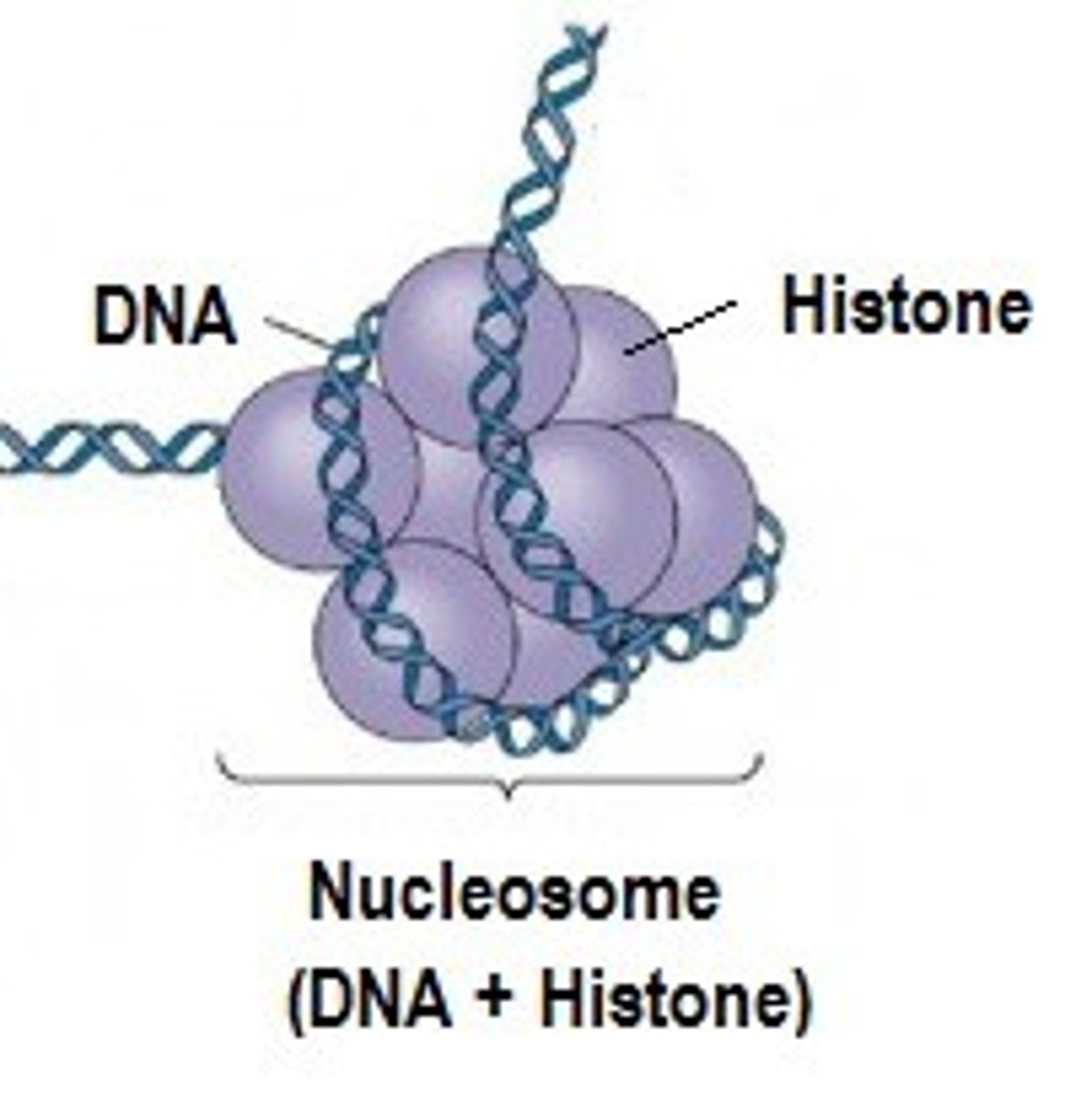
What are some Nucleosome characteristics?
Nucleosomes are 200 base pairs long, and are coiled around an octamer of histone proteins
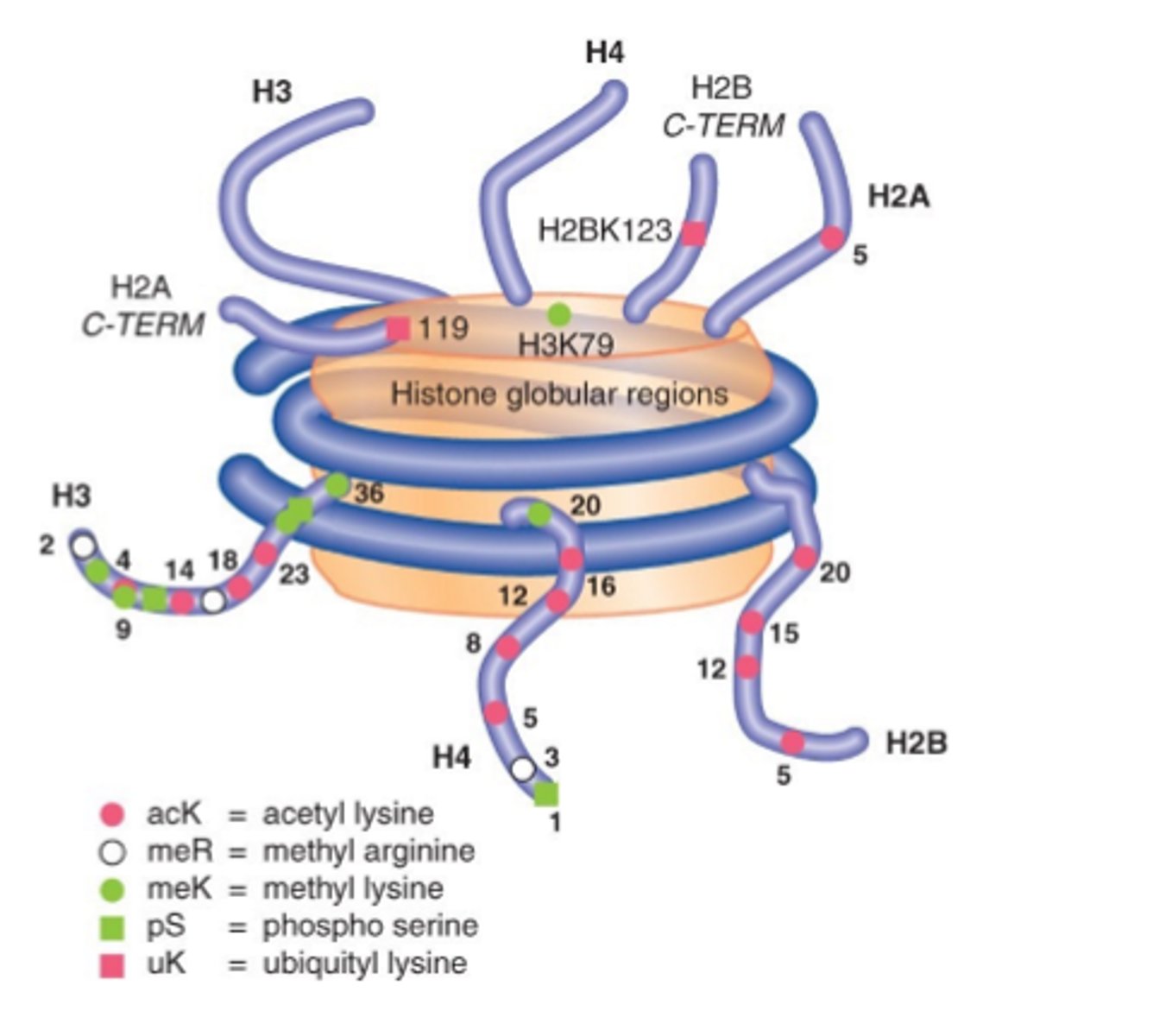
What are histone tails?
These are flexible amino or carboxyl terminal regions of the core histones that extend, they are subject to modifications.
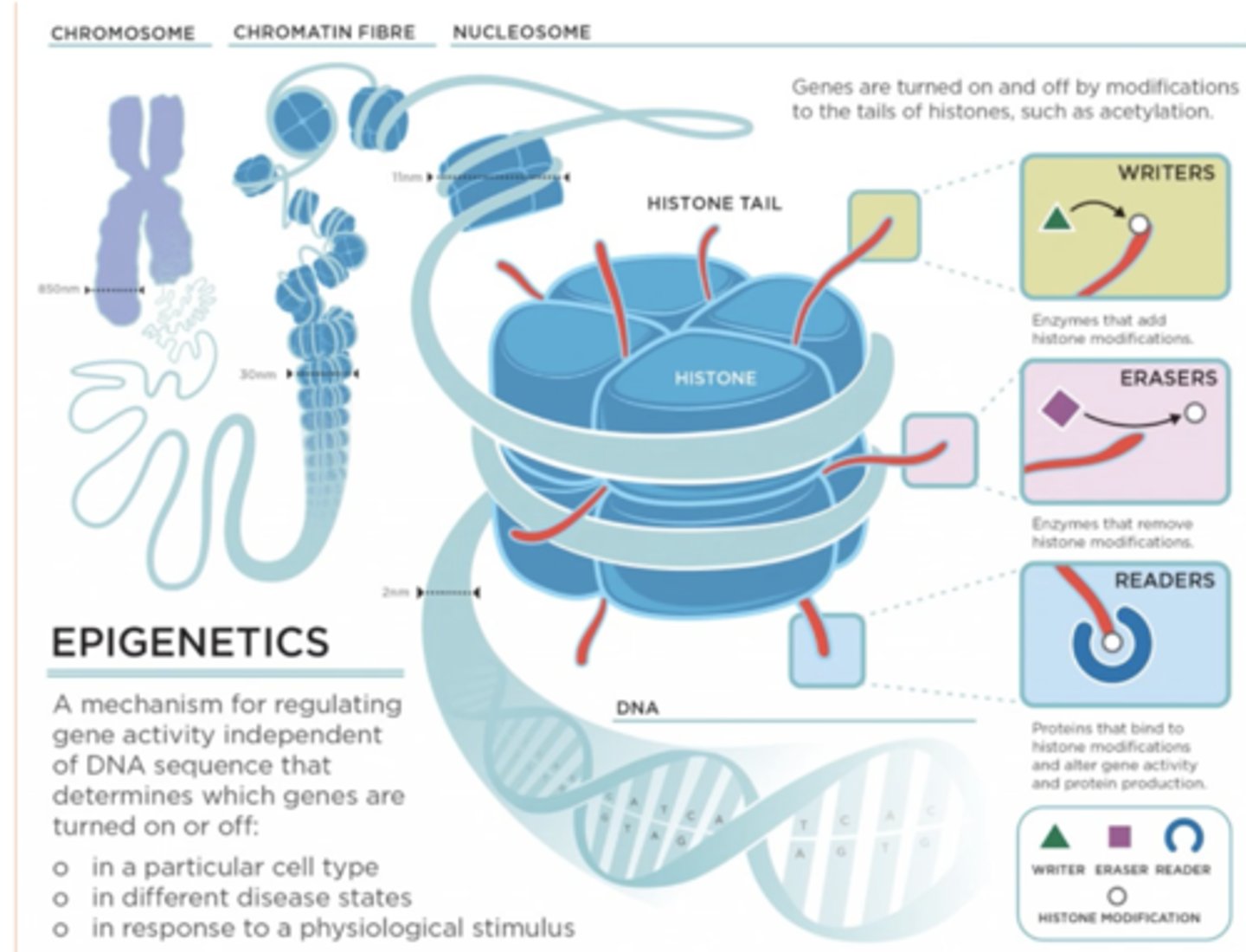
What makes up the Histone Octamer?
1 Tetramer of H3(2)-H4(2)
2 Heterodimers H2A-H2B
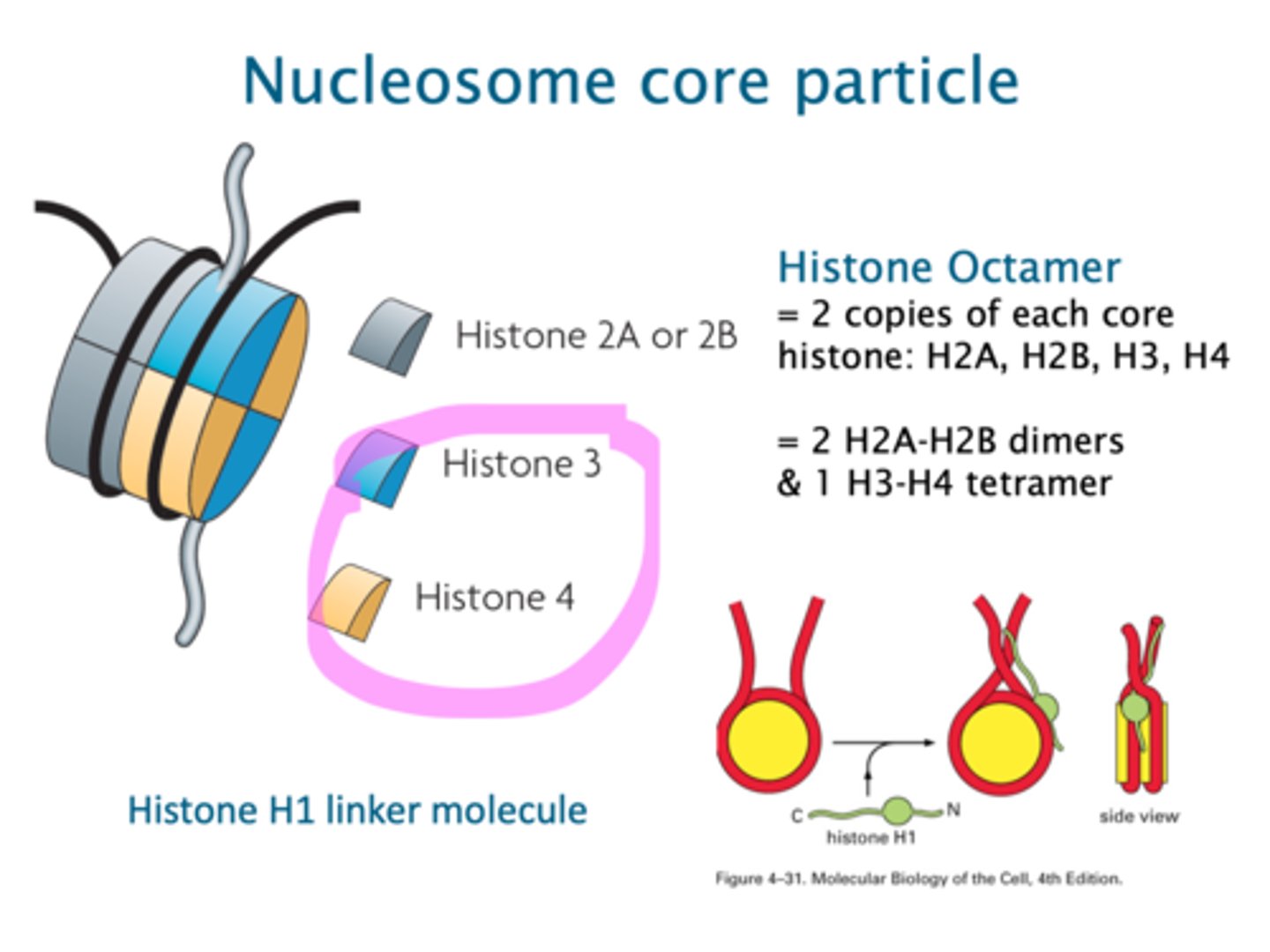
What does the H1 histone do?
It connects histone cores to another.
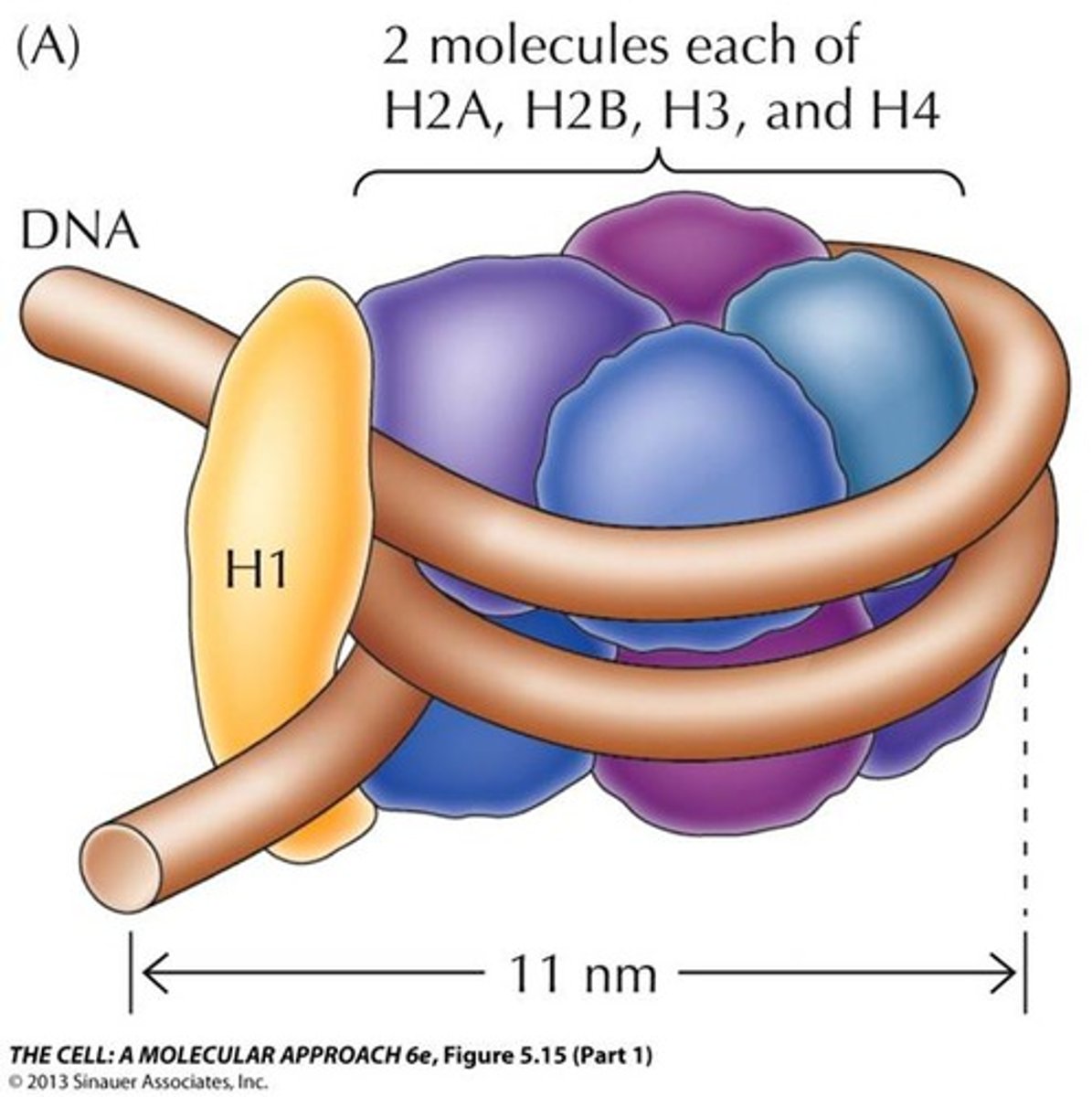
How many times is DNA wrapped around the histone octamer? How long is the strand being wrapped?
The DNA is wrapped around 1.65x and is 80 base pairs long
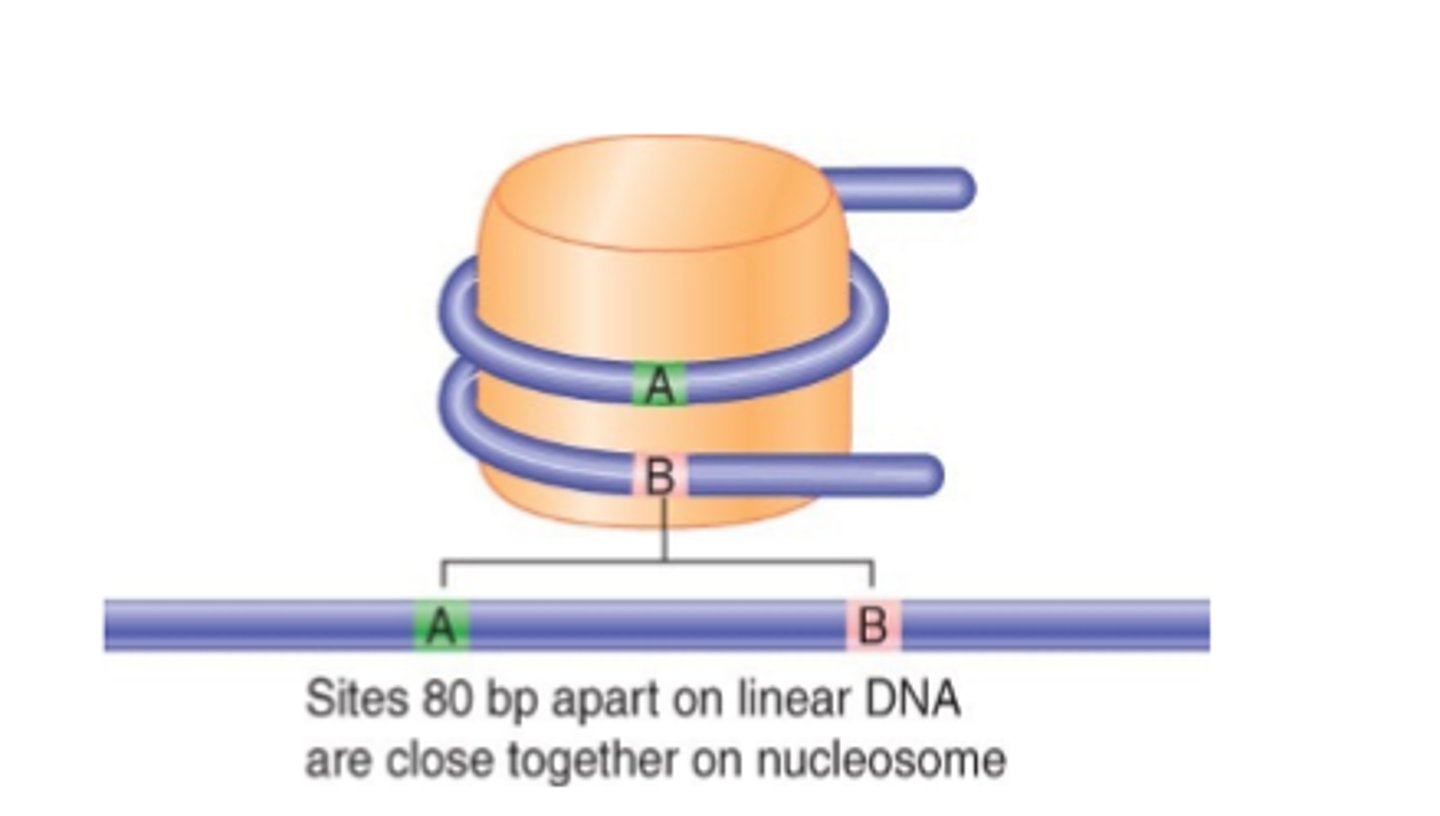
How are the different proteins arranged in the histone octamer?
H3 and H4 are a horseshoe shape that forms the central kernal, H2A and H2B are two heterodimers located on top and below the kernel
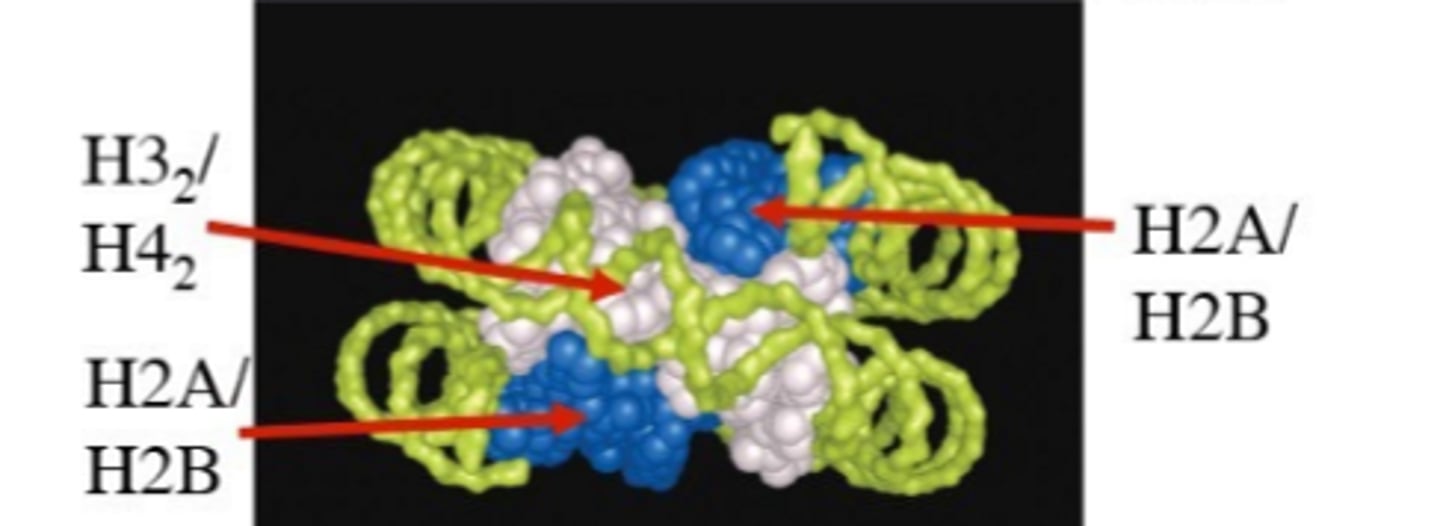
What are the histone tails?
Each protein has their own N-terminal tails while H2A and H2B also have C-terminal tails
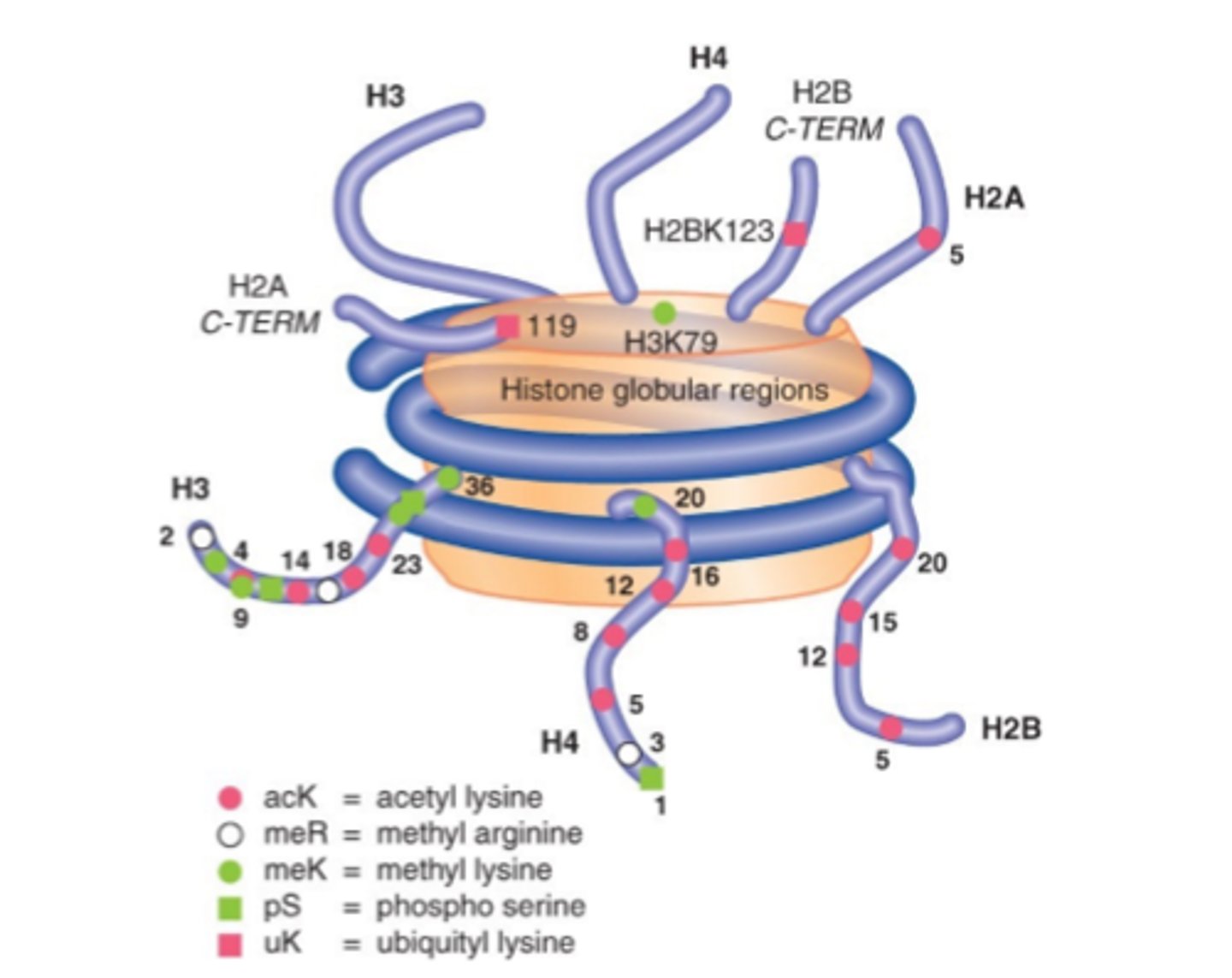
What do the tails on histones do?
They contact the H1 linker and histones in core of adjacent nucleosomes.
What are the 3 types of simple histone tail modifications discussed?
1. Methylation
2. Acetylation
3. Phosphorylation
What does histone methylation do?
Adds a Methyl group (CH3) onto Lysine and Arginine residues, it does not affect the positive charge of NH3+ groups
What does Histone Acetylation do?
Adds an Acetyl group to Lysine residues, it neutralizes the positive charge and adds a bulky group
What does Histone Phosphorylation do?
Adds a phosphate group onto Serine and Threonine residues, this introduces a negative charge.
What is the general idea of Acetylation's and Methylations?
Acetylations activate and Methylation repress gene expression.
What are proteins that recognize acetylated histones?
Bromodomains recognize the acetylated Lysine
What are proteins that recognize methylated histones?
Chromodomain, Tudor domain, Plant HomeoDomain all recognize methylated Lysine and Arginine.
What are the H3 Histone Variants and their functions? (There are 3)
H3 - Canonical core Histone
H3.3 - Transcriptional Activaiton
CenH3 - Kinetochore assembly
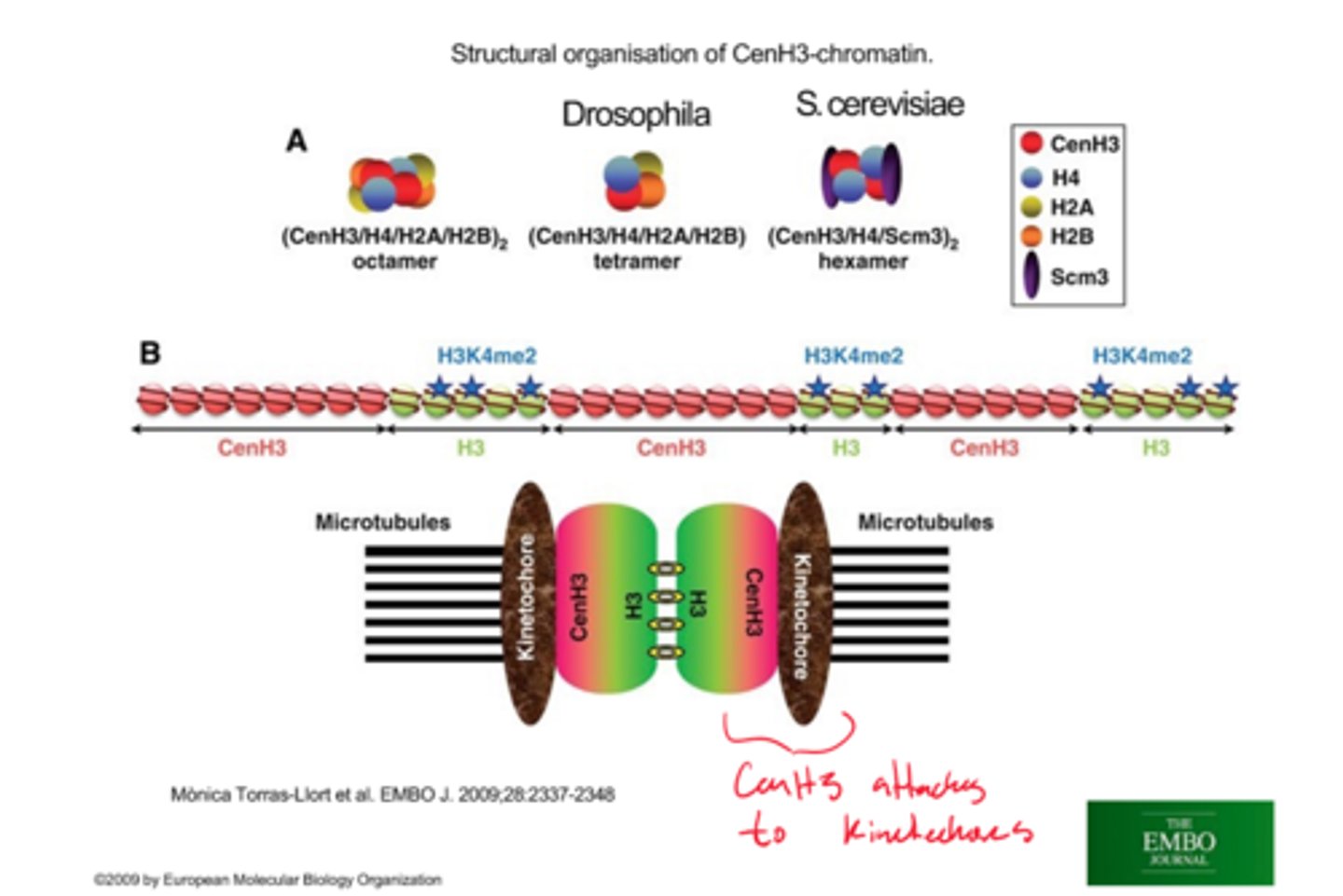
What are the H2A Hisotne Variants and their functions? (There are 5)
H2A - Canonical core Histone
H2AX - DNA repair and recombination
H2AZ - Gene expressional and chromosome segregation
macroH2A - X chromosomal inactivation
H2ABBD - Transcriptional Activation
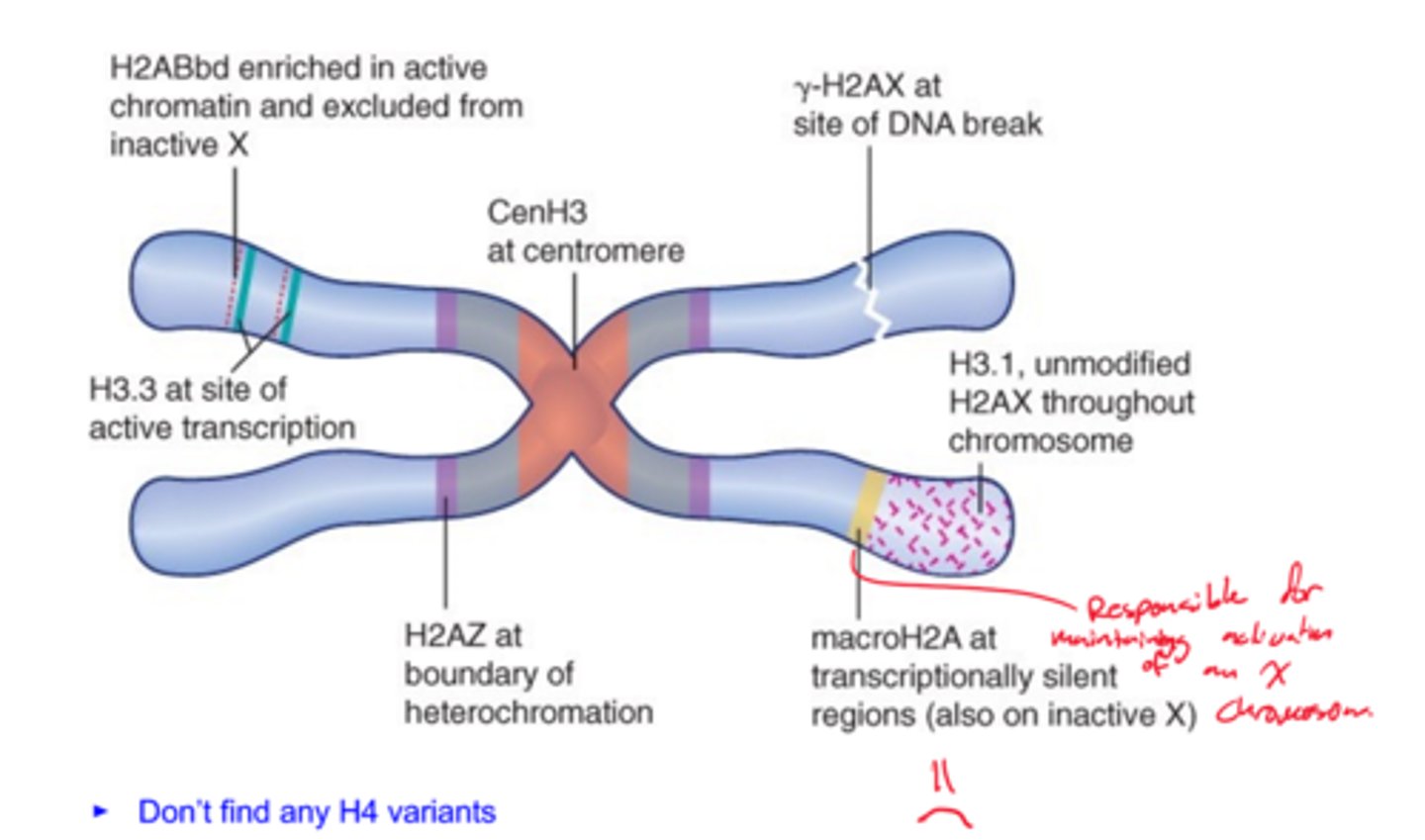
What are the H2B histone variants and their functions? (There are 2)
H2B - Canonical core Histone
spH2B - Chromatin packaging
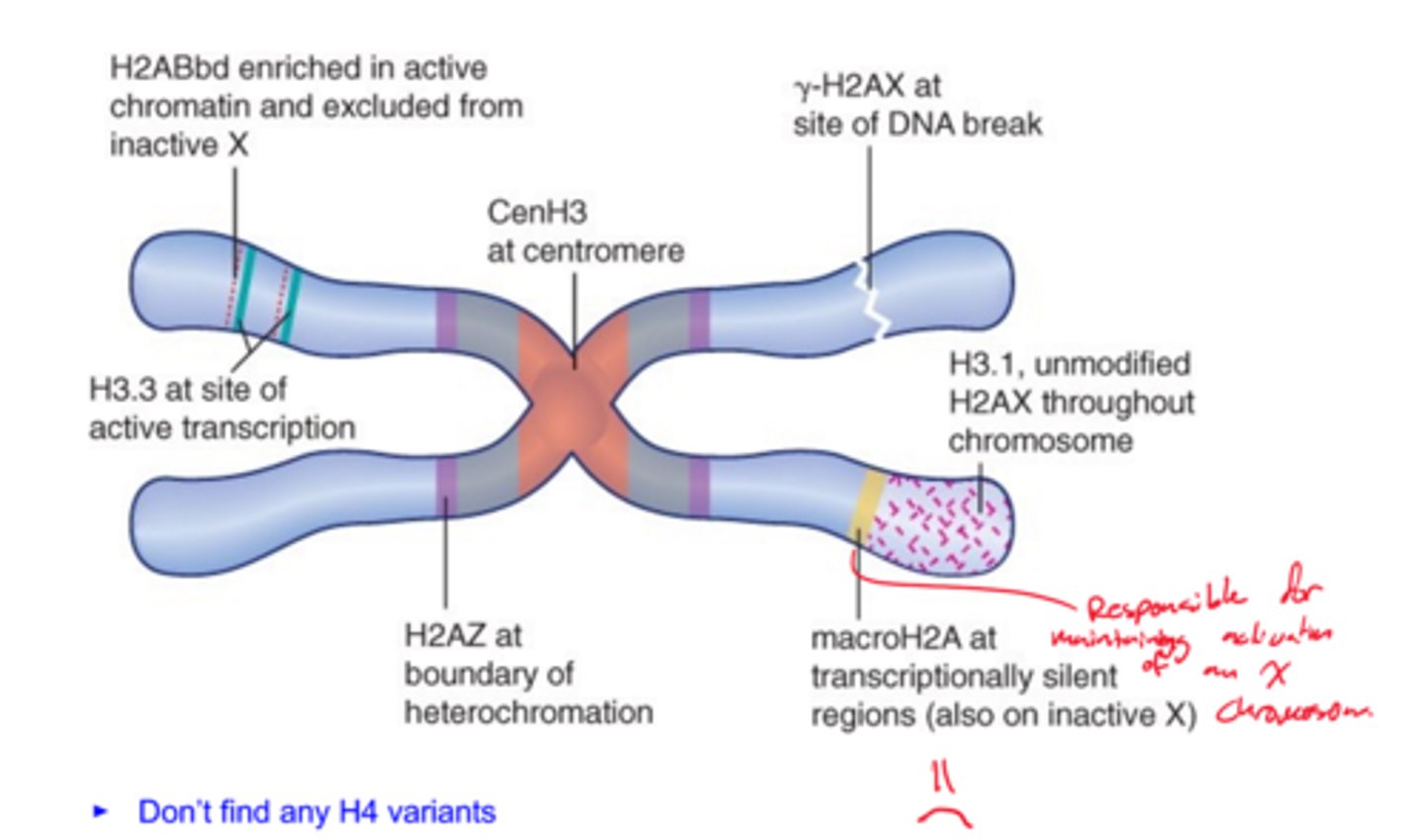
What are the levels of Organization of Nucleosomes?
1. 10nm fiber - Linear array of nucleosomes by unfolding from natural condition of chromatin
2. 30nm fiber - Coil of nucleosomes
3. Solenoid - 10nm fiber coi8led into 30nm fiber
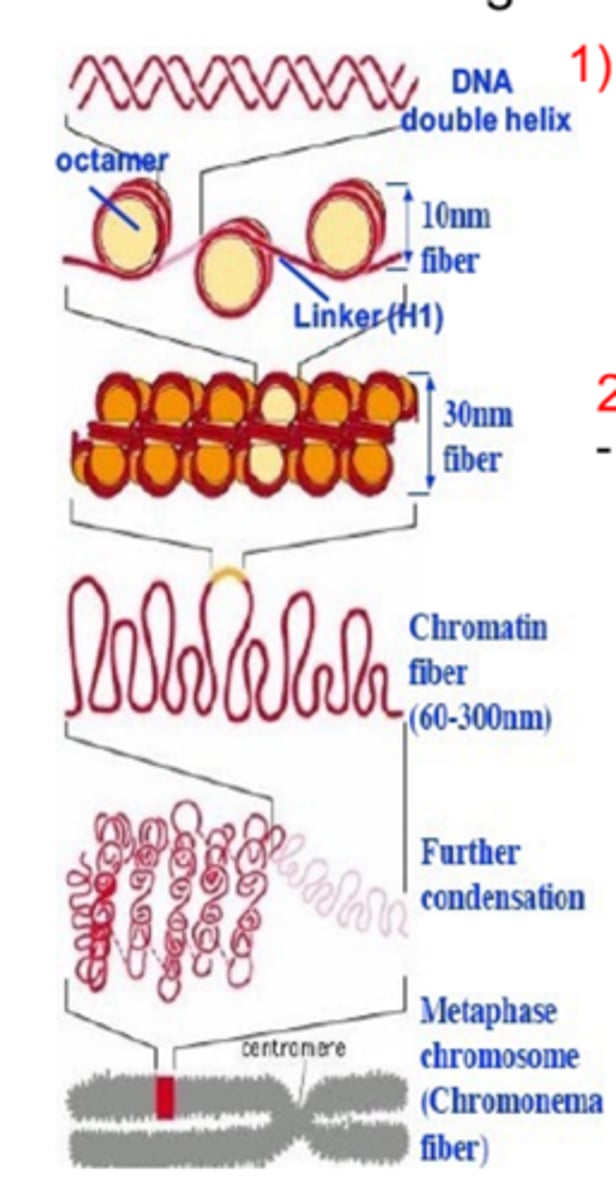
What occurs to histones during the replication phase (S Phase) of cell division?
Histone proteins are also made during the S phase
What are the proteins CAF1 and Asf1 responsible for?
They are responsible for assisting in the binding of new H3-H4 Heterodimer as well as binding of the old H3-H4 Heterodimers; new and old H2A-H2B dimers will join shortly after.
Why is translational positioning important?
DNA Sequences that are located in linker regions are more accessible to binding proteins, endonucleases, and are easily degraded.
What is translational positioning?
It is the position of DNA with regard to the boundaries of the nucleosome.
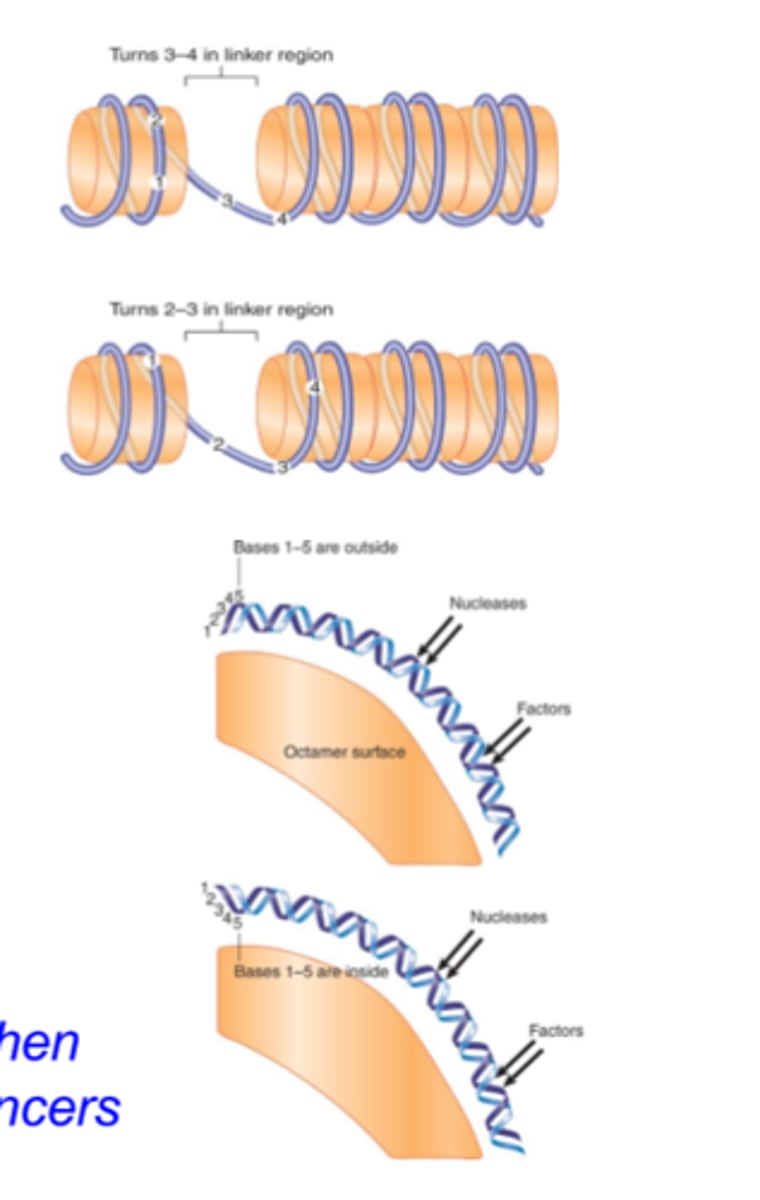
What is rotational positioning?
The location of the histone octamer relative to turns of the double helix. The DNA face that is away from the histone is more exposed
What is the relationship between RNA Polymerase and Histones?
They are similar in size this RNA Polymerase will displace the histones and will reassemble behind the RNA Polymerase after it has passed by.

What are Chromonema fibers?
A type of nucleosome organization that is organized into interphase chromatid or metaphase chromosome.
What is the Replication-Coupled Pathway?
This pathway is the reason why histone synthesis is tied to the cell cycle, during the S-Phase histone proteins are also created.
What does FACT stand for?
Facilitates Chromatin Transcription
What does FACT do?
It behaves like an elongation factor and causes nucleosomes to lose H2A-H2B
What does it mean to be "in phase"?
It means that nucleosomes are at distinct locations relative to start sites, these genes are transcriptionally repressed.
What does it mean to be "out of phase"?
It means that nucleosomes are not found in distinct locations relative to start sites, these genes are transcriptionally active.